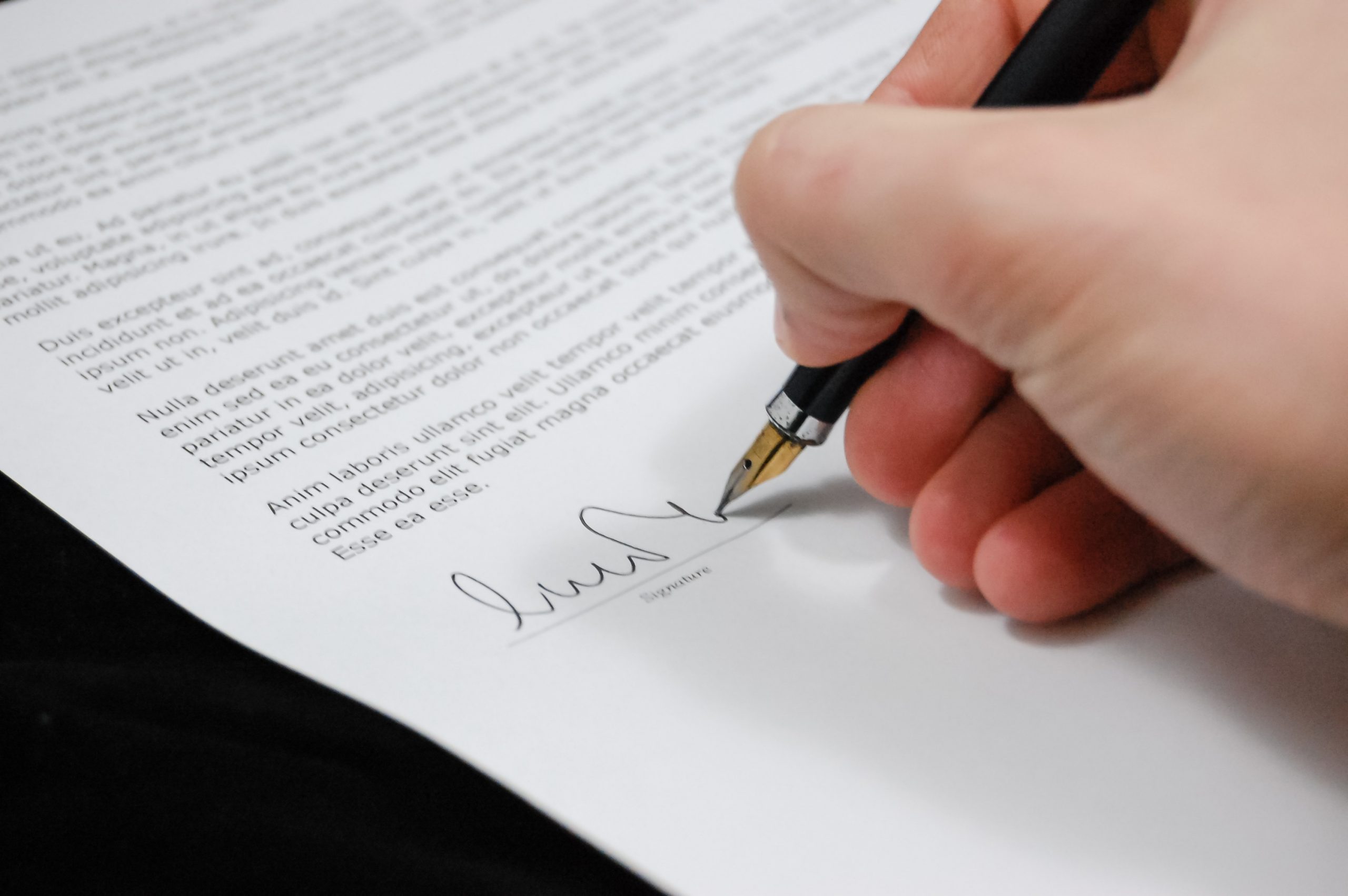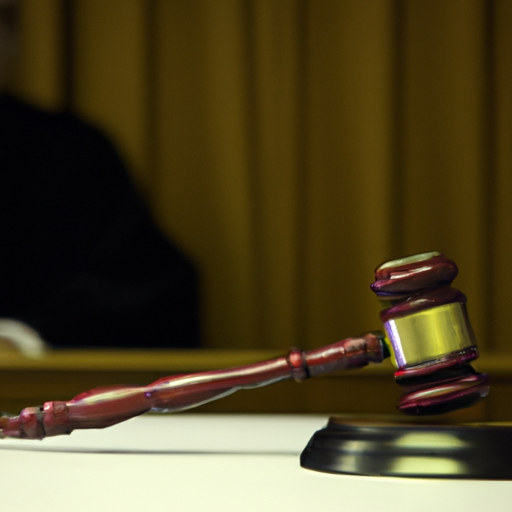In the Criminal Defense Courtroom, the stakes are high and the need for a skilled and experienced lawyer is paramount. When facing criminal charges, individuals need someone who can navigate the complexities of the legal system and advocate for their rights. This article aims to provide a comprehensive understanding of the criminal defense process, addressing common concerns and offering guidance to those in need. By showcasing expertise through real-life scenarios and case studies, this lawyer sets themselves apart from others in the field. Through clear and accessible explanations of complex legal concepts, individuals facing criminal charges can gain the confidence to seek assistance and take the necessary steps to protect their future.

Overview of Criminal Defense Courtroom
The criminal defense courtroom is the setting in which criminal cases are heard and decided. It is where individuals who are facing criminal charges are brought to trial, and where their guilt or innocence is determined. The courtroom is a crucial component of the criminal justice system, as it provides a platform for the presentation of evidence, examination of witnesses, and arguments from both the prosecution and the defense.
In the criminal defense courtroom, the role of the defense attorney is of utmost importance. The defense attorney is responsible for representing the defendant and ensuring their rights are protected throughout the legal process. They play a key role in preparing and presenting a defense strategy, cross-examining witnesses, and presenting evidence in support of the defendant’s innocence or mitigation of charges.
Role of Criminal Defense Attorney
Understanding the attorney’s role
The role of a criminal defense attorney is to provide legal representation to individuals facing criminal charges. They act as an advocate for their clients and work tirelessly to ensure a fair trial and protect the rights of the accused. Defense attorneys are responsible for understanding and applying the law to their clients’ cases, building strong defense strategies, and negotiating with prosecutors to secure favorable outcomes.
Duties and responsibilities of a defense attorney
A defense attorney has various duties and responsibilities throughout the criminal defense process. These include conducting a thorough investigation of the case, interviewing witnesses, reviewing evidence, filing pre-trial motions, negotiating plea bargains, and representing the client during trial. The attorney also provides legal advice, explains the potential consequences of various options, and guides the defendant through the complex legal system.
Importance of hiring a skilled defense attorney
Hiring a skilled defense attorney is crucial for anyone facing criminal charges. A skilled defense attorney has a deep understanding of the law, courtroom procedures, and the tactics employed by prosecutors. They have the expertise necessary to challenge the prosecution’s evidence, identify weaknesses in the case, and construct a solid defense strategy. A competent defense attorney can greatly increase the chances of obtaining a favorable outcome, such as acquittal, reduced charges, or minimized penalties.
Pre-Trial Stage
The pre-trial stage of a criminal case is a critical phase where various important legal processes take place. It is during this stage that the defense attorney lays the groundwork for the defense strategy and explores opportunities for resolving the case before trial.
Arraignment process
The arraignment is the formal reading of the charges against the defendant. It is the defendant’s first appearance in court, where they are informed of their rights, the charges they are facing, and asked to enter a plea of guilty or not guilty. The defense attorney guides the defendant through this process, explains the implications of each plea option, and helps them make an informed decision.
Bail hearings and release conditions
If the defendant is being held in custody, a bail hearing may be held to determine whether or not the defendant can be released from jail pending trial. The defense attorney presents arguments regarding the defendant’s eligibility for release and may propose certain conditions that will ensure their appearance in court. The attorney plays a pivotal role in advocating for the defendant’s release and securing favorable bail conditions.
Pre-trial motions and discovery
During the pre-trial stage, the defense attorney may file various motions with the court. These motions can seek to suppress evidence, exclude witness testimony, or challenge the legality of the arrest. The attorney uses these motions as strategic tools to weaken the prosecution’s case and protect the defendant’s rights. Additionally, the defense attorney engages in discovery, the process of gathering information and evidence from the prosecution, which allows them to assess the strength of the case against their client.
Plea negotiations
Plea negotiations involve discussions between the defense attorney and the prosecutor with the goal of reaching a mutually agreed-upon resolution to the case. The defense attorney advocates for their client by presenting mitigating factors, weaknesses in the prosecution’s case, or alternative explanations for the alleged conduct. They negotiate with the prosecutor to secure favorable plea offers, such as reduced charges or lenient sentencing recommendations, while always keeping the defendant’s best interests in mind.
Trial Stage
If a case proceeds to trial, the trial stage represents the pinnacle of the criminal defense courtroom process. It is during this stage that the defense attorney presents their case, challenges the prosecution’s evidence, and strives to convince the jury of the defendant’s innocence.
Jury selection
Jury selection, also known as voir dire, is the process of selecting impartial jurors to hear the case. The defense attorney, along with the prosecution, has the opportunity to question potential jurors and identify any biases or prejudices that may impact their ability to render an impartial verdict. The defense attorney aims to select a fair and unbiased jury that is receptive to their client’s defense strategy.
Opening statements
During the opening statements, the defense attorney presents an overview of the defense strategy and outlines what they expect the evidence will show. This is the attorney’s opportunity to provide an initial impression of the case and set the stage for the defense.
Presentation of evidence
The defense attorney presents evidence to support the defendant’s case. This may include witness testimony, expert opinions, physical evidence, or documentary evidence. The defense attorney carefully analyzes the prosecution’s evidence, identifies weaknesses or inconsistencies, and presents evidence that undermines the prosecution’s case or supports the defendant’s version of events.
Cross-examination
Cross-examination is a crucial tool used by the defense attorney to challenge the credibility, reliability, or accuracy of the prosecution’s witnesses. The defense attorney aims to expose any inconsistencies, biases, or ulterior motives that may undermine the witness’s testimony or credibility.
Closing arguments
In the closing arguments, the defense attorney summarizes the evidence presented during the trial and reinforces the defense’s theory of the case. The attorney highlights any weaknesses in the prosecution’s case, emphasizes reasonable doubt, and offers a compelling narrative that supports the defendant’s innocence or reduced culpability.
Jury instructions and deliberation
After closing arguments, the judge provides the jury with instructions on the law that they must apply during their deliberations. The defense attorney works to ensure that the jury understands the legal standards and principles that favor the defendant’s case. The jury then deliberates to reach a unanimous or majority decision on the defendant’s guilt or innocence.
Verdict
The verdict is the final outcome of the trial and determines the defendant’s guilt or innocence. If the jury returns a not guilty verdict, the defendant is acquitted and released. If the jury returns a guilty verdict, the defense attorney may explore options for post-conviction relief, such as filing an appeal or seeking a new trial.
Types of Defenses
There are various types of defenses that a criminal defense attorney may employ to protect their client’s rights and secure a favorable outcome. Each defense strategy is designed to challenge the prosecution’s case and raise doubts about the defendant’s guilt.
Mistaken identity
Mistaken identity occurs when a witness or the prosecution wrongly identifies the defendant as the perpetrator of the crime. The defense attorney may present evidence to demonstrate that the witness’s identification was unreliable or influenced by external factors, such as poor lighting or biased lineup procedures.
Alibi
An alibi defense asserts that the defendant was elsewhere at the time the crime was committed and, therefore, could not have been involved in the alleged offense. The defense attorney may rely on witnesses, surveillance footage, or other evidence to establish a solid alibi.
Self-defense
The self-defense defense asserts that the defendant acted to protect themselves from harm and that their actions were justified. The defense attorney must present evidence that the defendant reasonably believed they were in immediate danger and that their response was proportionate to the threat.
Insanity defense
The insanity defense is used when the defendant’s mental state at the time of the offense prevents them from understanding the nature and consequences of their actions. The defense attorney must provide evidence, such as expert testimony or medical records, to support the claim of insanity.
Entrapment
Entrapment occurs when law enforcement induces or coerces an individual into committing a crime they would not have otherwise committed. The defense attorney must demonstrate that the defendant was not predisposed to engage in criminal activity and that they only committed the offense due to the actions of law enforcement.
Justification
A justification defense asserts that the defendant’s actions were necessary to prevent a greater harm or protect the well-being of themselves or others. The defense attorney must present evidence to show that the defendant’s actions were reasonable and proportionate to the circumstances at hand.
Lack of intent
The lack of intent defense asserts that the defendant did not have the requisite mental state to commit the crime. The defense attorney must demonstrate that the defendant did not act purposefully, knowingly, or recklessly, depending on the specific requirements of the offense.
Challenges for the Defense
The defense faces a multitude of challenges in the criminal defense courtroom. Understanding and navigating these challenges is crucial for building a strong defense strategy and securing a favorable outcome for the defendant.
Burden of proof
In a criminal trial, the prosecution bears the burden of proving the defendant’s guilt beyond a reasonable doubt. However, the defense attorney must still address the evidence presented by the prosecution and present a coherent counter-narrative to raise doubt in the minds of the jury.
Presumption of innocence
The presumption of innocence is a fundamental principle of criminal law that holds that the defendant is considered innocent until proven guilty. The defense attorney must ensure that the jury understands and respects this principle, emphasizing the need for the prosecution to meet their burden of proof.
Cross-examination strategies
Effective cross-examination is essential for challenging the credibility of the prosecution’s witnesses and uncovering inconsistencies or biases in their testimony. The defense attorney must craft strategic questions and employ effective communication techniques to elicit favorable responses and weaken the prosecution’s case.
Discrediting prosecution’s evidence
The defense attorney must meticulously analyze the prosecution’s evidence, scrutinizing its validity, reliability, and relevance. They must seek opportunities to challenge the evidence, present alternative explanations, or introduce reasonable doubt to counter the prosecution’s case.

Prosecution’s Case
While the defense attorney’s primary focus is on protecting the rights of the defendant, understanding the prosecution’s case is crucial. By understanding the strategies employed by the prosecution, the defense attorney can better anticipate their arguments and identify weaknesses in their case.
Gathering evidence
The prosecution gathers evidence through various means, such as witness interviews, forensic analysis, surveillance footage, or expert opinions. The defense attorney must carefully review this evidence, assess its validity, and identify any potential weaknesses or inconsistencies.
Presenting witnesses
The prosecution presents witnesses, such as victims, law enforcement officers, or experts, to provide testimony that supports their case. The defense attorney must thoroughly prepare for the examination and cross-examination of these witnesses, aiming to challenge their credibility, reliability, or biases.
Expert testimony
The prosecution may call upon experts in various fields to provide specialized knowledge or opinions relating to the case. The defense attorney must carefully examine the qualifications and findings of these experts, challenge their methodology or conclusions, and present their own expert testimony, if necessary, to challenge the prosecution’s position.
Demonstrative evidence
The prosecution may present demonstrative evidence, such as photographs, videos, or diagrams, to illustrate their case. The defense attorney must carefully analyze this evidence and determine if it accurately portrays the events in question. They may challenge the authenticity, relevance, or accuracy of the demonstrative evidence to weaken the prosecution’s case.
Courtroom Etiquette
Courtroom etiquette is of utmost importance for all individuals present in the criminal defense courtroom. It ensures that proceedings are conducted in an orderly and respectful manner, while also preserving the rights of the accused.
Proper attire for the defendant and attorney
The defendant and their defense attorney should dress appropriately in court. Generally, this means wearing professional attire, such as suits or business attire, to convey respect for the courtroom and the legal process. Proper attire demonstrates seriousness and professionalism, which can influence the perception of the defendant and their defense strategy.
Addressing the judge and other court personnel
It is critical to address the judge and other court personnel with respect and professionalism. The defense attorney should refer to the judge as “Your Honor” and direct all communications to them in a polite and respectful manner. It is also important to address opposing counsel and witnesses in a professional manner, avoiding disrespectful or confrontational language.
Rules of conduct during proceedings
During courtroom proceedings, all parties must adhere to rules of conduct to maintain order and ensure a fair trial. This includes refraining from interrupting, speaking out of turn, or engaging in disrespectful behavior. The defense attorney must instruct their client on appropriate conduct and ensure that they understand the importance of maintaining decorum during proceedings.
Respecting courtroom decorum
Respecting courtroom decorum involves following the judge’s instructions, standing when requested, and refraining from any disruptive or disrespectful behavior. The defense attorney should instill in their client the importance of maintaining decorum, as it can directly impact the perception of the defendant by the judge, jury, and other court personnel.

Appeals Process
If a defendant is dissatisfied with the outcome of their trial, they may have the option to pursue an appeal. The appeals process allows for a review of the trial proceedings and decisions made by the trial court to determine if any errors occurred that affected the defendant’s rights.
Grounds for appeal
To file an appeal, the defense attorney must identify specific grounds on which to base the appeal. These grounds may include errors of law by the trial court, violations of the defendant’s Constitutional rights, judicial misconduct, ineffective assistance of counsel, or newly discovered evidence.
Filing an appeal
The defense attorney must follow specific procedures and deadlines to file an appeal. This may involve submitting a formal written brief outlining the grounds for appeal, the errors that occurred during the trial, and the legal arguments that support the request for a reversal or modification of the trial court’s decision.
Appellate court procedures
Once the appeal is filed, the case moves to the appellate court, where a panel of judges reviews the trial court’s proceedings. The defense attorney must present oral arguments, respond to questions from the appellate judges, and submit written briefs to support their arguments. The appellate court will then issue a written decision, either affirming the lower court’s decision, reversing it, or remanding the case for a new trial or further proceedings.
FAQs about Criminal Defense Courtroom
Is hiring a defense attorney necessary?
Yes, hiring a defense attorney is crucial for anyone facing criminal charges. A skilled defense attorney has the knowledge, experience, and expertise to navigate the complex legal process, protect the defendant’s rights, and present a strong defense strategy. They can significantly increase the likelihood of obtaining a favorable outcome or mitigating the potential consequences of a conviction.
What happens if I cannot afford a defense attorney?
If you cannot afford a defense attorney, you may be eligible for court-appointed representation. In such cases, the court will appoint an attorney, often from a public defender’s office or a panel of qualified attorneys, to represent you. These court-appointed attorneys are generally experienced in criminal law and will provide legal representation at no cost or at a reduced fee.
How long does a criminal trial typically last?
The duration of a criminal trial can vary depending on the complexity of the case, the number of witnesses, the volume of evidence, and other factors. Some trials can be resolved within a few days, while others may extend for weeks or even months. The defense attorney can provide a more accurate estimate based on the specific circumstances of your case.
What are the potential penalties for a criminal conviction?
The potential penalties for a criminal conviction depend on several factors, such as the specific offense, the defendant’s criminal history, and any aggravating or mitigating circumstances. Penalties can range from fines and probation to imprisonment, restitution, community service, or a combination thereof. The defense attorney can provide guidance on the potential penalties associated with the charges you are facing.
Can the defense attorney negotiate a plea deal?
Yes, the defense attorney can negotiate a plea deal with the prosecution on behalf of the defendant. Plea negotiations involve discussions between the defense attorney and the prosecutor to reach a resolution to the case without proceeding to trial. The defense attorney will advocate for a plea agreement that minimizes the potential consequences for the defendant, such as reduced charges or lenient sentencing recommendations, while always keeping the defendant’s best interests in mind.
In conclusion, the criminal defense courtroom is a critical component of the criminal justice system, where the rights of individuals facing criminal charges are protected and their guilt or innocence is determined. A skilled defense attorney plays a vital role in advocating for their clients, constructing strong defense strategies, and navigating the complex legal process. From the pre-trial stage to the trial stage, defense attorneys employ various tactics, such as challenging the prosecution’s evidence, presenting viable defenses, and ensuring that the defendant’s rights are upheld. By understanding the challenges, strategies, and procedures involved in the criminal defense courtroom, individuals can make informed decisions and seek the assistance of a competent defense attorney to protect their interests.



